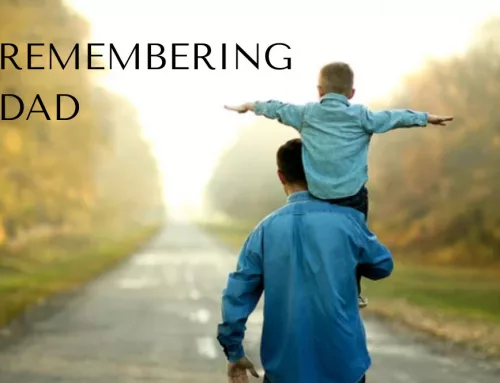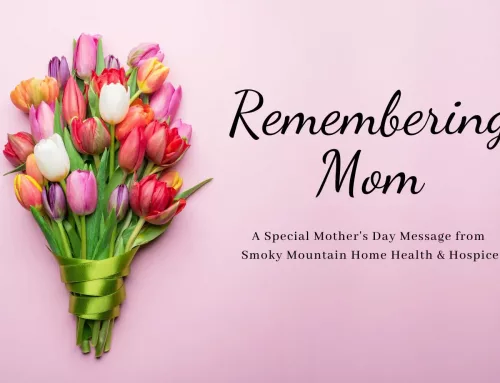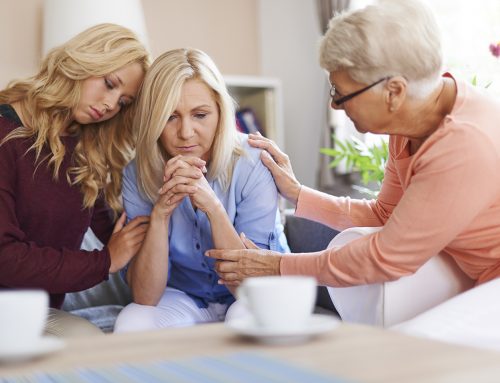Grief at holidays can be especially difficult for people who have experienced the death of a loved one. Memories can be painful and holiday traditions are hard to continue. Sadness and loneliness are magnified at this time of year when togetherness and family are celebrated.
The chaplains at Smoky Mountain Home Health and Hospice are available to help you cope with your grief. We provide spiritual support and counseling to families to help them through the grieving process.
SMHHH Chaplain Kim Robinson offers some tips for coping with grief at the holidays:
Accept Your Limitations
The first way to cope is to accept your limitations. You may not be ready to fully celebrate the holidays. Robinson advises you to “Choose your commitments wisely. You only have to do what feels right to you,” she said. “Your friends and family may not understand why you don’t want to celebrate. You need to let them know that their expectations of you may not be what you are comfortable doing yet.”
Be prepared for physical and emotional responses that emerge this time of year. If you expect these responses then you will be able to accept them better. Some of the more common physical responses are:
- upset stomach
- headache
- lack of energy
- loss of appetite
- lost sleep
- lack of concentration
Emotional responses include:
- sadness
- loneliness
- anger
- guilt
- fear
“You may even experience grief bursts (crying spells) at any time. These are all normal responses to grief that is part of the healing process,” Robinson said. “You need to let those emotions flow out of you and not try to stop them.”
Take Care of Yourself
Your No. 1 responsibility is to take care of yourself. You are responsible for your own body, mind and spiritual being. People who are grieving are under immense stress, and some of this stress is happening subconsciously and unconsciously. Grief is a lot of work and can make you feel tired. Robinson recommends walking outside in the fresh air to relieve some stress and get a different perspective. Eating healthy is also very important and will help you feel better.
Be careful not to avoid dealing with your grief by burying your pain with alcohol, drugs or overworking. Robinson said that these responses are “an avoidance tactic.”
“You will not start healing until you deal with these things,” she said.
Other people turn to shopping or just sleeping all the time. Taking your mind off the pain temporarily is not the way to deal with your grief long-term.
It is important to know that depression and grief are not the same. “There can be some interrelationship but they have differences,” Robinson said. “Grief is focused on a particular event. Depression is more focused on yourself and feeling emptiness and despair all the time. If you feel that you are depressed, speak to your physician and talk to them about what you are feeling.”
When you grieve for a loved one, expect that you are going to have some aspects of both depression and grief. Be aware if you do not have at least some moments of lightheartedness and seek help.

Keep Holiday Activities Limited
Don’t overbook and overextend yourself with holiday-related activities. If you do accept an invitation, you can always give yourself an out such as leaving early. Ask family and friends to help shoulder some of the burden if you are usually the one who hosts or cooks for holiday events. You can also limit your decorations if you don’t have much energy. You can get a small tree instead of a big one or just display a special ornament.
Something positive you can do is to start a new tradition to memorialize your loved one, which can help you feel like you are doing something for them. “You can leave a special place setting at the table or light a candle and keep it lit on special days.” Robinson said. Another idea is to buy a gift that you would have given to your loved one and donate it to a favorite charity. You can also plant a tree or flowers in memory of your loved one.
Don’t Ignore your Faith
Focusing on your faith is an important way to deal with grief at the holidays. You can find solace in the word of God, by praying and pouring out your heart to God, by fellowshipping with fellow believers and by attending a church service. You can watch church services online if you can’t attend in person. “You can always cry out to God as tears are a language that He understands,” Robinson said. “He knows your pain.” You are not alone as long as you rely on and trust in His promises.
Reaching out to others is a great way to deal with your grief. Ask yourself “How can I make this holiday special for someone else?” In honor of your loved one, you can go out and do something good, something useful and helpful for another person. You can volunteer your time to a shelter or other non-profit. Other ideas include creating a gift basket or food basket for a needy family or purchasing gifts for a child or family from an angel tree.
Deal With Pain By Embracing It
Chaplain Kim also suggests that you spend time by yourself. “Deal with your pain by embracing it” Robinson said. “It may sound counterproductive but engaging your pain is where the healing starts. Lean into your pain – don’t lean away from it.” Think about your own thoughts regarding the loss you have suffered. It is a different world than you are used to and you have to learn how to navigate in it. You need time with yourself to process everything that has happened. You may have issues that you need work through.
There are several ways to move forward in your life. Robinson suggests writing a letter to your loved one. “You can thank them or tell them how much you miss them,” Robinson said. “It is only for you and you don’t have to share it with anyone.” Another suggestion is to talk to pictures of your loved one. Do whatever is comfortable for you. Remember that crying is natural and you should not be afraid of tears. Physiologically, tears are a wonderful way of getting rid of tension.
Give yourself permission to have feelings and thoughts of hopefulness and happiness. It is a good sign when those types of thoughts start breaking through. Don’t feel guilty about having fun or having hope. “That is a sign that the light is coming through in the darkness of your grief and your healing is beginning,” Robinson said. “But it is also normal if you are still feeling sad.” Don’t feel guilty no matter how you are feeling.
Not a Destination
“Grief is a journey, it is not a destination or a conclusion,” said Robinson. The journey tends to lighten as the years go by but it is still a journey. Embrace the journey and give yourself permission to heal. The holidays can be a difficult time to deal with grief. We hope some of these suggestions will help you have an easier time coping with the holidays.
Please contact our SMHHH chaplains. We would love to help you, encourage you, and pray for you.






